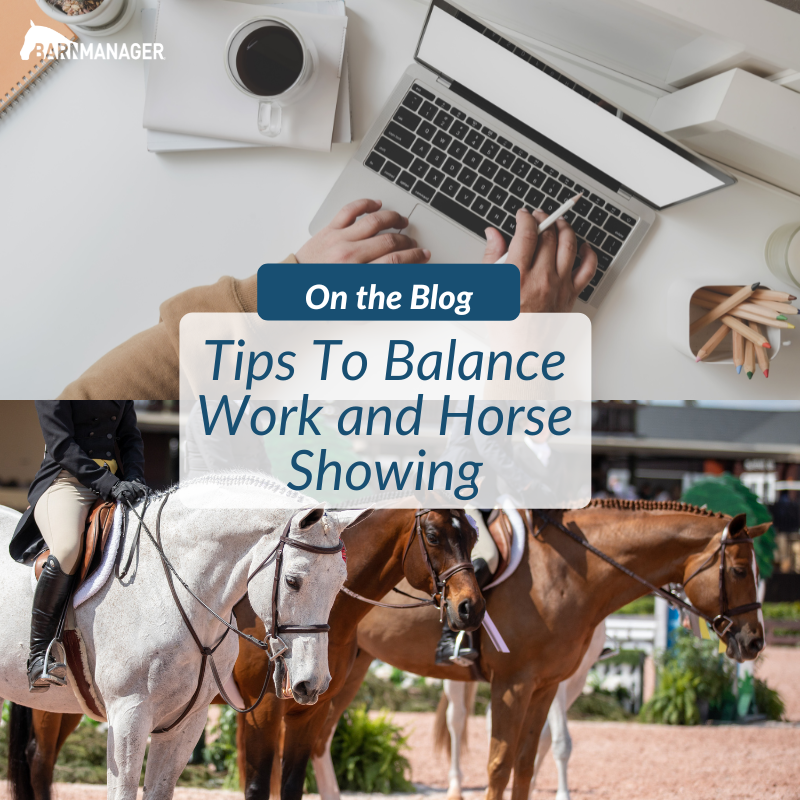Horse showing with a full-time job is a challenging task that requires a lot of commitment and planning ahead. Keep reading for a few tips from amateur riders who are professionals at balancing their work with a busy competition schedule.
Julia Weiss
Senior Director, Media at Giant Spoon
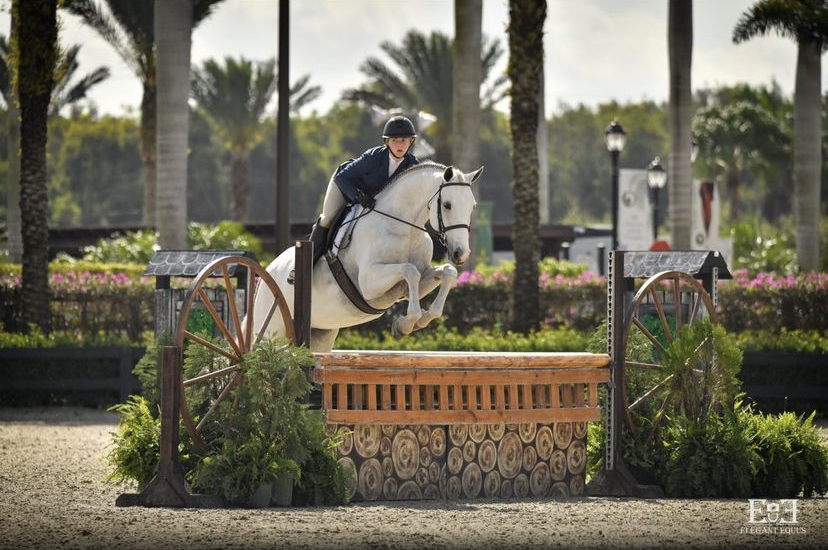
Photo by Elegant Equus Photography
What divisions do you compete in currently, and who do you train with?
I show in the Amateur-Owner Hunter and Jumper divisions. Right now I am in between horses but aspire to get back to competing in the High Amateur-Owner Jumpers again. I ride with Findlay’s Ridge based in North Salem, NY, and Wellington, FL.
What are some of the biggest challenges you face in balancing work with horse showing?
Time management! I always want to make sure I am doing the best I can in my professional and personal lives. My job is just that – my job – so I never want my riding to take me away from work in a way where someone has to pick up the slack. It’s tough to manage time working and riding, let alone time for yourself outside of those two pillars.
Finding the time to practice is another challenge. Most of what happens during a show is a result of the work that’s been put in before you get to the show ring. As an amateur, my time in the saddle is limited, which means I may make mistakes in the show ring due to a lack of practice at home. It’s hard when your competition didn’t go as you wanted it to, but you have to remember that in this sport what you get out is largely a reflection of what you put in.
What are your three favorite tips for successfully managing work and horse showing?
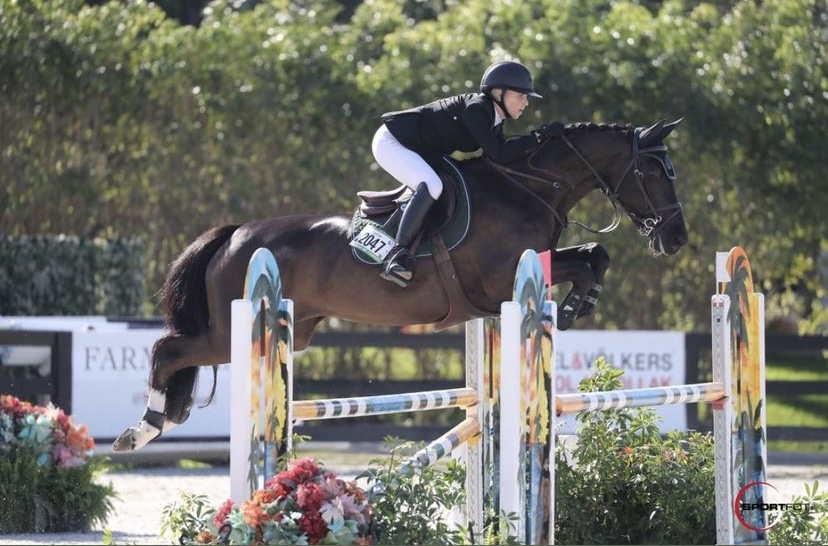
Photo by Sportfot
Open communication and transparency with your teams
Whenever I have a competition, I always let my team at work know when I may or may not be available so I can give them as much of a heads-up as possible. I’m lucky to work in an industry that allows me to step away from my computer and work from my phone to take calls and meetings as needed, and that my client deliverables and presentations are scheduled ahead of time. I’m also transparent with my trainer and barn managers about when I am unavailable, and when I need to be flexible. For example, if I have a call at a certain time, I’ll make sure they know that I need to go early or late in the order. If I have a client presentation on Thursday afternoon, we’ll look at the show schedule together to see if there’s a class earlier in the day that could better avoid potential conflicts.
You should know and understand what you are willing to be flexible on and what you are not flexible on. I try to make concessions with my riding schedule instead of my work schedule because, well, I get paid to work, not ride! I’ve been lucky enough to have missed neither an important client presentation nor a big competition. This is because of the support I receive from both of my teams.
Try to keep work separate from the ring and vice versa
There are times when I’ve walked up to the ring on my horse while on a work call and have had to hang up and warm-up for my class immediately. Obviously, it’s better to space out work and showing but if you have to do them back-to-back (or even more tricky, simultaneously), try to be fully present for the task at hand. Do your best not to take your client follow-ups into the ring with you. Similarly, keep your bad round out of your next Zoom meeting.
Take your competitions seriously, but not too seriously
With limited practice, you’re bound to make mistakes, and that’s fine. Remember why you’re doing it. For me, it’s about the mental challenge and the fun of competition. I constantly remind myself how lucky I am to be able to ride at all with a full-time job. It’s easy to lose sight of that sometimes but it’s critical to realize it in order to maintain your sanity and also continue to enjoy the full experience.
Alexandra Murray
Senior Associate in Business and Program Development at the Milken Institute
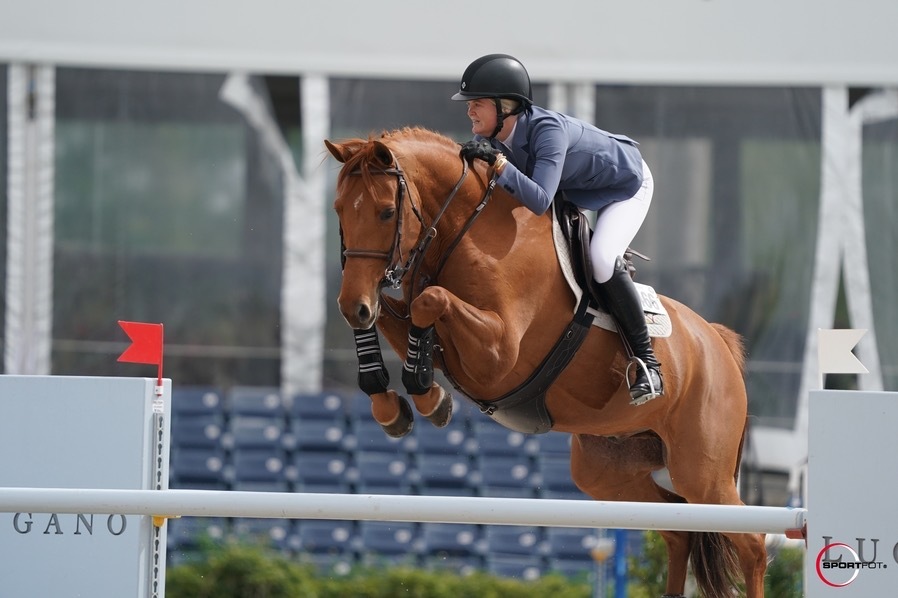
Photo by Sportfot
What divisions do you compete in currently, and who do you train with?
I compete in the High Amateur-Owner Jumper division and occasionally show in the regional grands prix. My current goal is to compete at the two-star level in the near future. I train with Lionshare Farm based in Bedford, NY, and Wellington, FL.
What are some of the biggest challenges you face in balancing work with horse showing?
Time management is my biggest challenge, and unfortunately, I have found that it is more an art than a science. With a full-time job, time in the saddle is limited and marginal compared to most of my competitors. I’m not deterred by this fact, mostly because I’m blessed to even be able to ride and compete, but also because I’ve found it motivating. Knowing this limitation, I put 110% of my effort into each ride and learn as much as possible.
What are your three favorite tips for successfully managing work and horse showing?
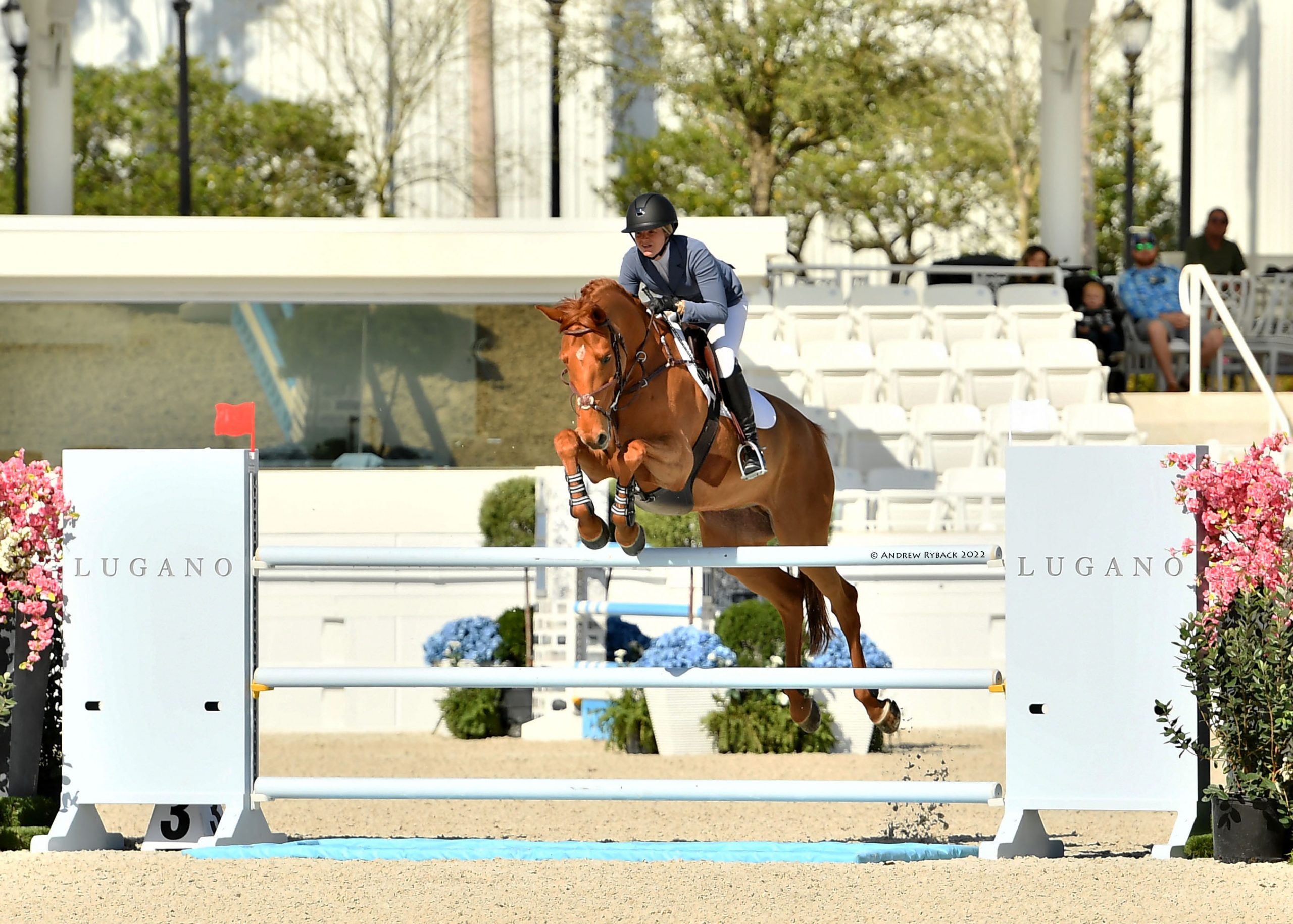
Photo by Andrew Ryback Photography
Plan ahead
This is definitely the “science” part of time management. My schedule for the week is always made by Sunday night. I like to arrange work calls during my commute to and from the barn, participate in competitions during quieter work months (when we are not hosting conferences), and plan calls or meetings around my classes during show weeks.
Stay flexible
Classes run late, people cancel, and sometimes there is traffic. Not everything goes according to plan, but don’t let that derail you. Depending on your prioritizations for the day, respond accordingly and move on.
Enjoy the ride, both literally and figuratively!
It is a privilege to live in New York City, ride with Lionshare Farm, and work at the Milken Institute. Though my calendar gets crazy, and at times it feels overwhelming, I am grateful for these opportunities. We are so lucky to work alongside such amazing animals, so we should savor and appreciate it!
Have questions about utilizing BarnManager or want to give it a try for yourself? Request a live demo here!
